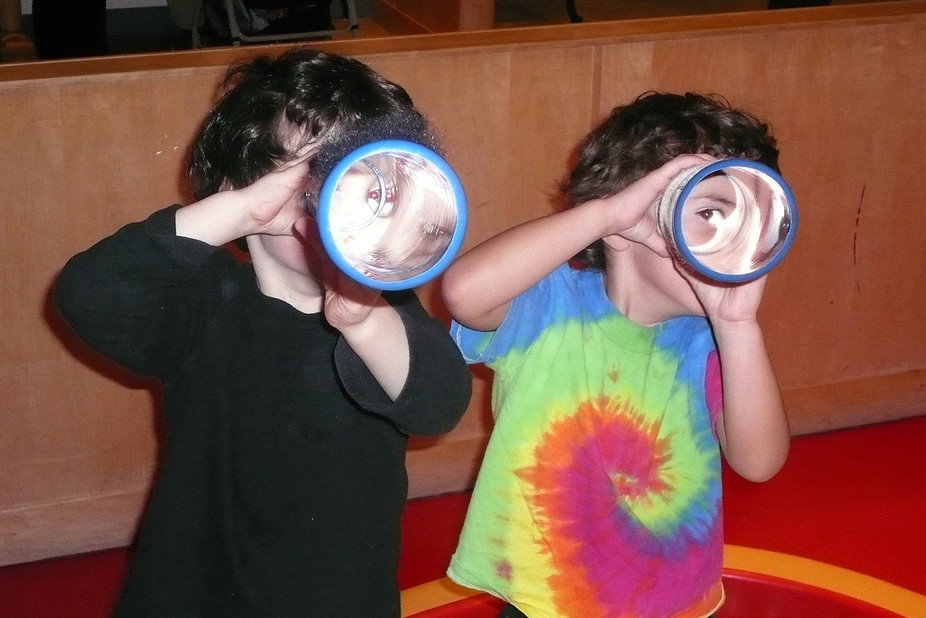Here’s why kids fall behind in science

Paul Morgan, Pennsylvania State University
Globally, the U.S. is at risk of declining economic competitiveness due to its continuing lower levels of educational attainment in science, technology, engineering, and mathematics (STEM).
The U.S. currently ranks 44th according to the quality of its mathematics and science education.
A “leaky STEM pipeline” – in which factors such as lower expectations, discrimination, and a lack of interest make it less likely that racial or ethnic minorities, women or those from low-income families will pursue STEM careers – makes many adults less likely to be employed in these types of positions.
Yet STEM positions are often high-paying and provide greater economic well-being and employment stability, especially as the U.S. transitions to a knowledge-based economy.
Efforts that increase schoolchildren’s science achievement – particularly those from diverse, traditionally marginalized populations – could help provide children with greater future employment opportunities while ensuring that the U.S. remains economically competitive.
The question is, when should these efforts begin? That is, how early do leaks in the STEM pipeline begin to occur?
Science achievement gaps
My research seeks to understand why some groups of children are more likely to struggle academically in U.S. schools. To date, I have been reporting on factors that increase children’s risk for lower achievement in reading and mathematics.

Early on, racial and ethnic minorities fall behind in science. NASA’s James Webb Space Telescope, CC BY-NC-ND
Researchers have found that large science achievement gaps occur within the U.S. These gaps are very large by middle school, and they are disproportionately experienced by children who are racial or ethnic minorities, English Language Learners (ELLs), and those from lower-income families.
For example, 63 percent of U.S. eighth graders who are black display “below basic” (that is, less than partial mastery of knowledge and skills necessary for grade level work) levels of science achievement. The contrasting percentage for white children is 20 percent. While 52 percent of low-income children display below basic levels of science achievement, only 20 percent of higher-income children do so.
Yet why these science achievement gaps are occurring has been unclear.
Very few studies have examined children’s science achievement across time. Most studies have used samples of middle or high school students. As a result, when science achievement gaps begin to occur has not been well understood.
Here’s what our study shows
To better understand these science achievement gaps, we analyzed a nationally representative sample of U.S. schoolchildren as they entered kindergarten and then continued through elementary and middle school.
The data were collected by the U.S. Department of Education, and designed to be representative of the population of children who entered U.S. kindergarten classrooms in 1998-1999.
The data included children’s reading and mathematics achievement, their classroom behavior, and many characteristics of their families and schools. Such characteristics included the quality of the children’s parenting, their family’s income, and the racial segregation of their schools. From third grade to eighth grade, the surveys included a measure of children’s science achievement.
During kindergarten and first grade, the surveys assessed children’s general knowledge about their natural (e.g., the seasons, the lunar phases, erosion) and social worlds (e.g., what a fireman does, what planes and trains have in common).
Our analyses of these data yielded three surprising findings.

The gaps exist when kids enter kindergarten. PRONavy Hale Keiki School, CC BY
First, we found that very large gaps in general knowledge were already evident among children entering kindergarten classrooms in the U.S. For example, about 60 percent of black children scored in the bottom 25 percent on the general knowledge measure. The contrasting percentage for white children was 15 percent.
About 65 percent of low-income children entered kindergarten with low levels of general knowledge. Only 10 percent of high-income children did so. The general knowledge and science achievement gaps in kindergarten were even larger than the reading or mathematics achievement gaps.
In other words, leaks in the STEM pipeline were originating “close to the tap.”
The second surprising finding was that general knowledge gaps by kindergarten strongly predicted science achievement gaps by third grade. For example, of those whose general knowledge was in the lowest 25 percent during kindergarten, 62 percent, 60 percent and 54 percent had levels of science achievement in the lowest 25 percent at the end of third, fifth or eighth grade, respectively.
This suggests that children who are already struggling with low levels of general knowledge in kindergarten are likely to still be struggling in science throughout elementary and middle school.
Children’s general knowledge was a stronger predictor of third grade science achievement than race/ethnicity, reading or mathematics achievement, classroom behavior or family income.
Both the general knowledge and science achievement gaps were very stable over time.
Children who are racial or ethnic minorities, English Language Learners or from low-income households displayed lower levels of science achievement by third grade and typically continued to lag behind throughout elementary and middle school. Girls displayed relatively lower science achievement than boys in third grade.
Closing these gaps
Our third finding was more encouraging. We found that we could explain most of these general knowledge and science achievement gaps. And this could help inform efforts by parents, practitioners, and policymakers to close these gaps.
For example, we were able to explain 75 percent of the third grade science achievement gap between black and white children as well as 97 percent of the gap between low- and high-income children.

Early interventions could help.NASA HQ PHOTO, CC BY-NC-ND
Factors that helped explain science achievement gaps included children’s reading and mathematics achievement, their behavior and, most importantly, their general knowledge.
Helping young children to be more knowledgeable about their physical and social surroundings, as well as to be better at reading and mathematics, may increase their science achievement as they grow older.
Asking children questions about their surroundings while encouraging and extending their initial explorations could help them improve their general knowledge and science achievement.
Encouraging policies that lead to high-quality childcare for children most at risk could reduce these gaps. Policies that counter the racial segregation of U.S. schools might also be helpful.
It is never too late to help children grow to be successful. But if we are really serious about their as well as our nation’s future opportunities, we will do more to help all children begin kindergarten already knowledgeable about their natural and social worlds.
Collective, coordinated, and sustained efforts by parents, practitioners, and policymakers during children’s early school careers could make all the difference.
![]()
Paul Morgan, Associate Professor of Education, Pennsylvania State University
This article was originally published on The Conversation. Read the original article.




